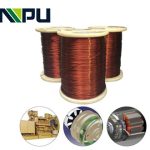Conductors and insulators are two distinct types of materials based on their ability to conduct electrical charges. The main difference between them lies in how they allow or prevent the flow of electricity:
-
Conductors: Conductors are materials that allow the easy flow of electrical charges, specifically electrons. In a conductor, the outermost electrons of atoms are loosely bound, and they are free to move within the material. When an electric field is applied, these free electrons can move from one atom to another, creating an electric current. Metals, such as copper and aluminum, are excellent conductors of electricity. They are commonly used in electrical wires and cables because they can efficiently transport electrical energy with minimal resistance.
-
Insulators: Insulators are materials that resist the flow of electrical charges. In insulators, the outermost electrons of atoms are tightly bound to their respective nuclei, and there are very few free electrons available for movement. Consequently, when an electric field is applied, insulators do not allow the passage of electric current through them easily. Instead, they inhibit the flow of electricity. Examples of insulators include rubber, glass, plastic, and wood. Insulators are used to protect conductors and prevent accidental electric shocks since they do not conduct electricity well.

Key Differences Between Conductor and Insulator
-
The conductor is the type of material which allows the electric current or heat to pass through it whereas the insulator does not allow the electric current or heat to pass through it.
-
The electric field exists only on the surface of the conductor, and it remains zero inside the conductor whereas it does not exist on an insulator.
-
The conductor, when placed in a magnetic field do not store energy whereas the insulator stored energy in a magnetic field.
-
The thermal conductivity of the conductor is high, whereas the thermal conductivity of the insulator is low.
-
The covalent bond between the atoms of a conductor is very weak whereas in an insulator it is very strong.
-
In conductor, the electrons freely move from atom to atom whenever a potential difference is applied across it whereas, in an insulator, the electrons are fixed due to atomic level forces.
-
The conductivity of the conductor is high, whereas the conductivity of the insulators is low.
-
The resistance of the conductor is very less, and hence the electrons freely move from atom to atom. The resistance of the insulator is very high.
-
The conductor has a large number of free electrons whereas insulator does not have a large number of free electrons.
-
The potential on the conductor remains same at all the point whereas in insulators the potential remains zero.
-
The resistivity of the conductor varies from high to low whereas the resistivity of an insulator is very high.
-
The conductor has positive thermal coefficient of resistance whereas the insulator has the negative thermal coefficient of resistance..
-
The conduction band of a conductor is full of electrons whereas the conduction band of an insulator is empty.
-
The valence band of a conductor is empty whereas the valence band of an insulator is full of electrons.
-
There is no forbidden gap in conductor whereas the forbidden gap in an insulator is very large.
-
Copper, silver, aluminium, mercury are the examples of the conductor. The wood, paper, ceramic etc., are the examples of an insulator.
-
The conductor is used for making electrical wires and cables. The insulator is used for separating the current carrying conductors and for supporting the electrical equipment.
LP Industry can produce magnet wires using in Transformers, motors etc. According to your requirement with best prices, check our website to learn more: https://www.lpmagnetwire.com/
Reference: https://circuitglobe.com/difference-between-conductor-and-insulator.html






